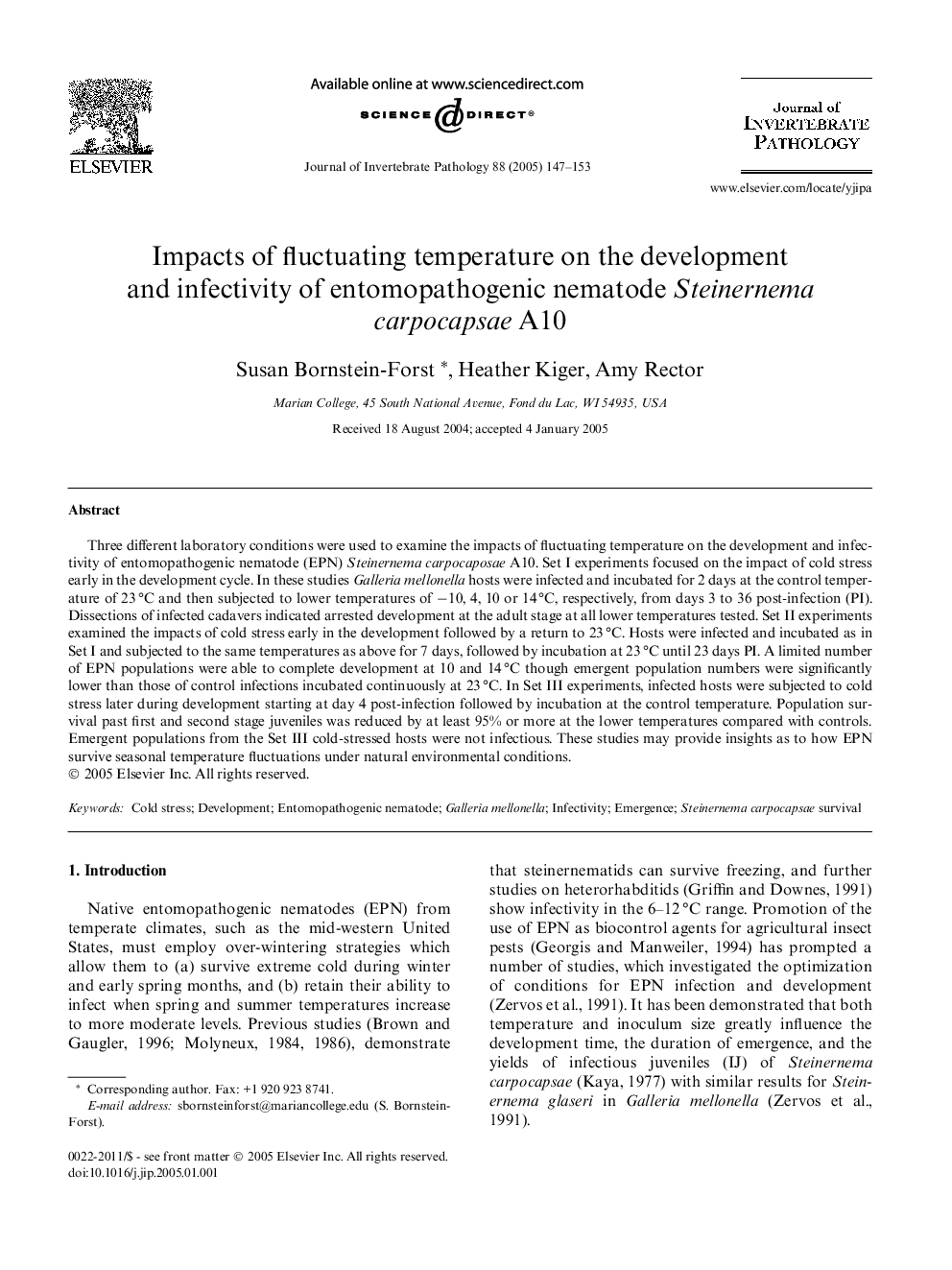| Article ID | Journal | Published Year | Pages | File Type |
|---|---|---|---|---|
| 9486620 | Journal of Invertebrate Pathology | 2005 | 7 Pages |
Abstract
Three different laboratory conditions were used to examine the impacts of fluctuating temperature on the development and infectivity of entomopathogenic nematode (EPN) Steinernema carpocaposae A10. Set I experiments focused on the impact of cold stress early in the development cycle. In these studies Galleria mellonella hosts were infected and incubated for 2 days at the control temperature of 23 °C and then subjected to lower temperatures of â10, 4, 10 or 14 °C, respectively, from days 3 to 36 post-infection (PI). Dissections of infected cadavers indicated arrested development at the adult stage at all lower temperatures tested. Set II experiments examined the impacts of cold stress early in the development followed by a return to 23 °C. Hosts were infected and incubated as in Set I and subjected to the same temperatures as above for 7 days, followed by incubation at 23 °C until 23 days PI. A limited number of EPN populations were able to complete development at 10 and 14 °C though emergent population numbers were significantly lower than those of control infections incubated continuously at 23 °C. In Set III experiments, infected hosts were subjected to cold stress later during development starting at day 4 post-infection followed by incubation at the control temperature. Population survival past first and second stage juveniles was reduced by at least 95% or more at the lower temperatures compared with controls. Emergent populations from the Set III cold-stressed hosts were not infectious. These studies may provide insights as to how EPN survive seasonal temperature fluctuations under natural environmental conditions.
Related Topics
Life Sciences
Agricultural and Biological Sciences
Ecology, Evolution, Behavior and Systematics
Authors
Susan Bornstein-Forst, Heather Kiger, Amy Rector,
